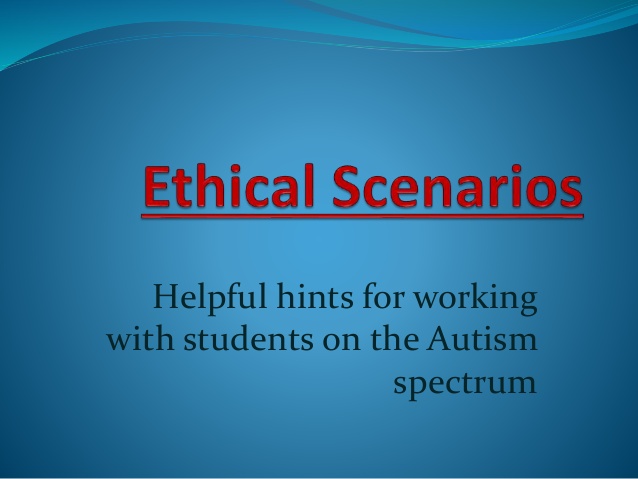Ethical concerns for students with Autism and how teachers can help!
- 1. Helpful hints for working with students on the Autism spectrum
- 2. Students with autism will need extra help from staff during the school day in order to be successful. Staff members should be aware of the specific educational needs of these students as well as the specific ethical concerns of the students.
- 3. Bullying Students with Autism are much more likely to be bullied than typical students. Often, the student won’t know they are being bullied. The student may call the bully a friend because there is social interaction happening. It is crucial to protect the student even if he does not understand the situation.
- 4. What can I do? Calmly lead the student away from the situation. Be careful not to touch the student. The student may not want to leave the situation. In that case, ensure the other student is removed. Enlist the help of another staff member to speak to the bully. Explain to the student that the other student was not behaving appropriately.
- 5. Meltdowns Students with Autism can have a meltdown. Meltdowns often look like a tantrum that a toddler may have. Meltdowns are NOT manipulative. They won’t stop if the student gets what he wants. Meltdowns can come from sensory overstimulation. Meltdowns can come from frustration.
- 6. What can I do? Make sure the student is safe. Move the student to a safe location if possible. Ensure the safety of other students. May need to remove them from the area. Enlist the help of other staff members to ensure safety. Use sensory aids to calm the student. Help the student communicate his needs if possible.
- 7. Confidentiality Teachers often want to collaborate to help students. Conversations can sometimes occur in public areas of the school. Confidentiality of students with special needs is paramount. All medical and diagnostic information should be kept confidential.
- 8. What can I do? Politely inform the staff members that the information being discussed is confidential. Ask them to move the conversation to a private area.
- 9. Sensory Difficulties Students with autism do not process senses in the same way typical people do. They are often hypersensitive to outside stimuli. Many students exhibit stereotypical behaviors. These behaviors are sometimes called “stimming”. Students require accommodations to assist them in handling stimuli.
- 10. What can I do? Allow them to utilize the accommodations they require. Dim the lights in the classroom. Don’t touch the student without permission. Place their desks away from others to suppress noise or distractions.
- 11. Let’s all work together to create a positive learning environment for our students.
Read the presentation here.
